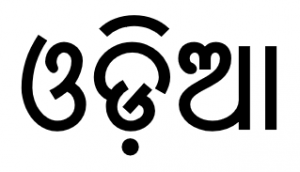Language/Odia/Grammar/Possessive-Pronouns
| ◀️ Personal Pronouns — Previous Lesson | Next Lesson — Weather Vocabulary ▶️ |
Introduction[edit | edit source]
In this lesson, we will explore the topic of possessive pronouns in Odia. Possessive pronouns are used to indicate ownership or possession. They replace nouns and show that something belongs to someone or something. Understanding possessive pronouns is essential for effective communication in Odia, as they are used extensively in everyday conversations. By the end of this lesson, you will be able to confidently use possessive pronouns in various contexts.
Personal Pronouns Recap[edit | edit source]
Before we dive into possessive pronouns, let's quickly recap personal pronouns. Personal pronouns are used to refer to people or things without specifically naming them. They replace nouns and make sentences less repetitive. Here is a table showing the personal pronouns in Odia:
| Odia | Pronunciation | English Translation |
|---|---|---|
| ମୋ | mo | I / me |
| ତୁମ | tum | you (singular) |
| ଆପଣ | apana | you (formal) |
| ତୁମଙ୍କ | tumanka | you all |
| ତୁମେ | tume | you (plural) |
| ସେ | se | he / she / it |
| ସାହୁଏ | sahue | we (inclusive) |
| ଆମେ | ame | we (exclusive) |
| ସେମାନଙ୍କ | semananka | they |
Now that we have refreshed our memory on personal pronouns, let's move on to possessive pronouns.
Possessive Pronouns in Odia[edit | edit source]
Possessive pronouns in Odia are used to show ownership or possession. They are used to indicate that something belongs to someone or something. Unlike personal pronouns, possessive pronouns do not require the noun they replace to be explicitly mentioned in the sentence. Here is a table showing the possessive pronouns in Odia:
| Odia | Pronunciation | English Translation |
|---|---|---|
| ମୋର | mora | mine |
| ତୋର | tora | yours (singular) |
| ଆପଣଙ୍କ | apananka | yours (formal) |
| ତୁମଙ୍କର | tumankara | yours (plural) |
| ତାଙ୍କ | tanka | his / hers / its |
| ଆମର | amara | ours |
| ସେମାନଙ୍କ | semananka | theirs |
It is important to note that possessive pronouns in Odia agree in gender and number with the noun they replace. For example, if you are referring to a singular masculine noun, the possessive pronoun used would also be in the singular masculine form. Similarly, for plural nouns or feminine nouns, the possessive pronouns would be in the appropriate form.
Let's look at some examples to understand how possessive pronouns are used in Odia:
- ଏହି ପୋଥରେ ମୋର ନାମ ଲେଖା ଆଛି। (Ehi pothare mora nama lekha achhi.) - My name is written in this book. - ତୁମଙ୍କର ମସ୍ତିଷ୍କର ଉପରେ ଏକ ଚିହ୍ନ ଆଛି। (Tumankara mastishkara upare eka chinha achhi.) - There is a mark on your forehead. - ସେମାନଙ୍କ ଘରରେ ଏକ ପୁସ୍ତକ ଆଛି। (Semananka gharare eka pustaka achhi.) - There is a book in their house.
As you can see from the examples, possessive pronouns replace the noun that indicates possession. They agree in gender and number with the noun they replace.
Cultural Insights[edit | edit source]
In Odia culture, possession is not only about material belongings but also extends to emotional connections and relationships. Odia people often use possessive pronouns to express their love and affection for their family members, friends, and even inanimate objects. It is common to hear phrases like "ମୋ ପରିବାର" (mo paribara) meaning "my family", or "ମୋ ପାଇଁ" (mo paainka) meaning "for me". This reflects the deep sense of belonging and attachment that Odia people have towards their loved ones and possessions.
Additionally, possessive pronouns play an important role in Odia literature and poetry. They are used to convey emotions, establish relationships, and create vivid imagery. Many Odia poems and songs beautifully capture the essence of possessiveness through the use of possessive pronouns. This cultural significance of possessive pronouns adds depth and richness to the Odia language and its expressions.
Exercises[edit | edit source]
Now it's time to practice using possessive pronouns in Odia. Complete the following exercises and check your answers.
Exercise 1: Choose the correct possessive pronoun to complete each sentence.
1. ଏହି କିତାବଟି ମୋର / ମୋରା ଅଛି। 2. ତୋର / ତୋରା ଗାଢ଼ ମତ କହିଲା। 3. ଆପଣଙ୍କ / ଆପଣଙ୍କର ଗୃହରେ ଏକ ବଡ଼ ବୋର୍ଡ୍ ଆଛି। 4. ତାଙ୍କ / ତାଙ୍କର ପାଇଁ ଏକ ଉପହାର ଆଛି। 5. ଆମର / ଆମରଙ୍କ ମନେ ଏକ ବଡ଼ ସପତ୍ନ ରହିଲା। 6. ସେମାନଙ୍କ / ସେମାନଙ୍କର ଘରରେ ଦୁଇଟି ବିବାହିତ ଜୋଡ଼ି ରହିଲା।
Exercise 2: Translate the following sentences to Odia using possessive pronouns.
1. This is my car. 2. Is this book yours? 3. The house is theirs. 4. Our mother is a doctor. 5. His favorite color is blue.
Solutions[edit | edit source]
Exercise 1:
1. ଏହି କିତାବଟି ମୋର ଅଛି। 2. ତୋର ଗାଢ଼ ମତ କହିଲା। 3. ଆପଣଙ୍କ ଗୃହରେ ଏକ ବଡ଼ ବୋର୍ଡ୍ ଆଛି। 4. ତାଙ୍କ ପାଇଁ ଏକ ଉପହାର ଆଛି। 5. ଆମର ମନେ ଏକ ବଡ଼ ସପତ୍ନ ରହିଲା। 6. ସେମାନଙ୍କ ଘରରେ ଦୁଇଟି ବିବାହିତ ଜୋଡ଼ି ରହିଲା।
Exercise 2:
1. ଏହି ମୋର କାର। 2. ଏହି କିତାବ ତୋରାରେ? 3. ଘର ତାଙ୍କଙ୍କରେ। 4. ଆମର ମାଆ ଡାକ୍ତର। 5. ତଙ୍କଙ୍କ ପସନ୍ଦର ରଙ୍ଗ ନୀଳ।
Conclusion[edit | edit source]
Congratulations! You have successfully learned about possessive pronouns in Odia. You now have the knowledge to indicate ownership and possession in your conversations. Practice using possessive pronouns in various contexts to enhance your language skills. Keep exploring the diverse cultural aspects of the Odia language, as it will deepen your understanding and appreciation of this beautiful language.
Sources[edit | edit source]
Other Lessons[edit | edit source]
- Plurals
- Present Tense
- Past Tense
- How to Use Be
- Conjunctions
- Pronouns
- Adjectives
- Wh Questions
- Conditional Mood
- Basic Prepositions
| ◀️ Personal Pronouns — Previous Lesson | Next Lesson — Weather Vocabulary ▶️ |

